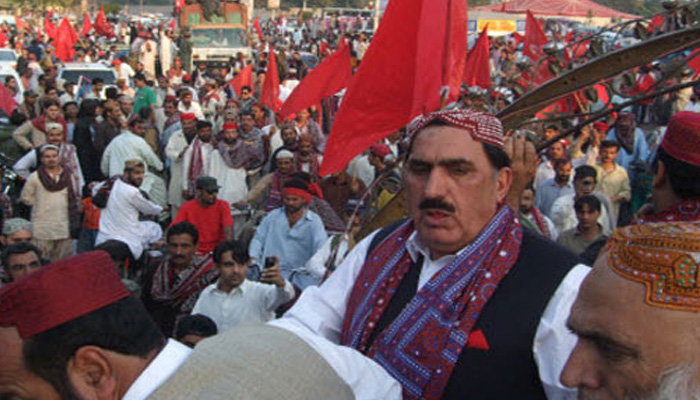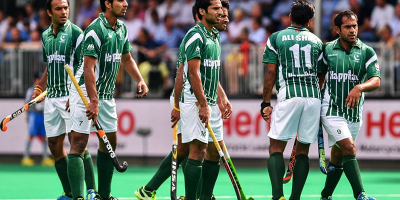ANP hopes to reclaim lost turf in general elections

PESHAWAR, JUNE 04 (DNA) – Although the Awami National Party has been fielding its candidates from Karachi’s various constituencies having Pashtun-populated areas, analysts believe that the upcoming general elections pose a great challenge to the political skills of the party’s local leadership to regain its lost turf in the metropolis.
In the 2008 general elections, the ANP, after forging a Karachi-level alliance with the Pakistan Peoples Party, won two seats of the Sindh Assembly from the city’s Pashtun-populated areas of Landhi and SITE industrial areas. But the ANP failed to win any seat at all in the 2013 polls even after making an alliance with the PPP.
The December 2015 local government elections also proved to be a political catastrophe for the ANP, which managed to win only one of the 209 seats from the city on its electoral symbol of lantern. However, ANP leaders are hopeful that the party will reclaim its lost turf in the upcoming general elections, scheduled to be conducted on July 25.
Ticket distribution
For the 2018 polls, the ANP has been eyeing various constituencies of Karachi where a significant population of Pashtuns resides. And for this purpose, the party has started distributing tickets for those constituencies.
Though the ANP had formed its parliamentary board in September last year to invite people aspiring to get the party’s tickets to contest the general elections and had issued some tickets a few months ago, the ANP has resumed distribution of tickets after the recent delimitation.
Abdul Malik, the party’s provincial spokesperson, told that the ANP will field candidates from all Pashtun-populated constituencies. On Sunday the party issued tickets to Siraj Ahmed and Gul Nawaz Khan Buneri for PS-91 and PS-90, two provincial assembly seats of District Malir, respectively.
The ANP has also allotted a ticket to Abdul Kabeer Kakar for PS-118, a provincial assembly constituency in District West. Earlier, the party awarded a ticket to former provincial labour minister Amir Nawab for PS-120, Qaim Khan Afridi for PS-115 and Pir Gul Rasool for PS-116 of District West.
ANP Sindh President Shahi Syed will contest the general elections from NA-250, a National Assembly constituency comprising SITE Town. Syed, who was elected senator from Khyber Pakhtunkhwa, retired from the Senate this March.
While the ANP’s descent in Karachi can be pinned on several reasons, analysts, however, claim that the Taliban’s attacks on its leaders and political gatherings served as the final nail in the coffin. But with Taliban militants having lost their hold in the metropolis by virtue of the ongoing operation, the ANP has embarked on regaining its lost ground in the city’s Pashtun neighbourhoods by taking part in the general elections.
The Tehreek-e-Taliban Pakistan’s (TTP) unabated attacks on the ANP, especially in District West, had compelled the party to go underground. The party lost more than 100 activists to the senseless attacks, claimed Malik.
ANP district presidents Saeed Ahmed Khan, Ameer Sardar, Dr Ziauddin and Saifullah Afridi, and general secretary Advocate Hanif were among those targeted. Several of the party’s leaders either moved back to their hometowns or shifted to Islamabad. The party was forced to shift its political meetings from the Bacha Khan Markaz to Mardan House, the ANP Sindh chief’s residence in the upmarket neighbourhood of DHA.
With pressure owing to the Taliban’s threats, the ANP could not do well in the 2013 polls, claim the party’s leaders. However, they say, the crackdown on criminals in Karachi shattered the TTP’s network, as several of its key commanders in the city were either killed or arrested.
The poor performance of its two lawmakers elected in the 2008 elections, fissures within the party and involvement of its cadres in violence and criminal activities also damaged the ANP in Karachi and provided room to other parties, especially the Pakistan Tehreek-e-Insaf and the Jamaat-e-Islami, to move in. Even the Ahle Sunnat Wal Jamaat exploited the vacuum in the Pashtun localities across the metropolis, observe political analysts.
Related News
Rana Mashhood Meets Italian Ambassador Armellin
Rana Mashhood, Italy’s Ambassador Armellini Discuss Trade, Education, Legal Labor Mobility and Youth Cooperation toRead More

Pakistan hockey players revolt against management
In response to the players’ bold stand and the mounting public outcry, the Pakistan SportsRead More


Comments are Closed